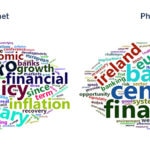Upcoming personnel changes at the ECB may cause a shift in European monetary policy
The Eurozone finance ministers recently approved the appointment of Ireland’s Central Bank Governor, Philip Lane, as the next chief economist at the European Central Bank (ECB). Alongside the central bank’s president and the members of the Executive Board, which will also see new appointments this year, the chief economist plays a key role on the institution’s Governing Council. According to BBVA Research, this year’s scheduled turnover at the bank, may result in changes to the ECB’s current stance on monetary policy.

Philip Lane's replacement of Peter Praet is not the only strategic position at the ECB to change in 2019. Mario Draghi’s term as President comes to an end in October, and Benoît Coeuré will leave his position on the Executive Board in December. The turnover in these positions may impact both the the scope and speed of the monetary policy normalization process recently kicked-off by the ECB.
"Once the central bank ended its asset purchase program (APP), the policy discussion shifted to when the first rate hike will take place and the pace of rate hikes," reads a BBVA Research report. According to this report, Mr. Lane’s speech illustrates his alignment with the current ECB president, but if Draghi’s and Coeuré's successors demonstrate a more hawkish stance – and are therefore more prone to raise interest rates – the pace of the normalization process could press forward more quickly.
Using natural language processing techniques, BBVA Research monitored speeches made by both Peter Praet and Philip Lane in order to identify what they talked about, what topics absorbed their attention, as well as the sentiment and tone that accompanied their discourses. Sentiment and tone can be associated with either a hawkish or dovish stance, where a hawkish posture is predominantly concerned with protecting the economy against excessive inflation, normally by raising interest rates, and a dovish stance focuses on preventing deflation and to this end is inclined to lowering interest rates.
After analyzing Mr. Praet and Mr. Lane’s speeches, the BBVA Research study drew the following conclusions: "The terms most commonly used by Mr Praet are related to the economy (inflation, growth, prices) and monetary policy (rates, measures, banks). Meanwhile, in his speeches, Mr Lane appears to be more focused on Ireland (obviously), as well as on financial and global issues (banking, stability, Brexit).

BBVA Research monitored speeches made by both Peter Praet and Philip Lane in order to identify what they talked about, what topics absorbed their attention.
Who holds a more optimistic view of monetary policy: Praet or Lane?
BBVA Research analyzed the sentiment in speeches made by the current ECB chief economist (Praet) and his imminent successor (Lane). The report represents sentiment as an indicator of the level of optimism (or moderation) vis-a-vis monetary policy.
As pointed out by BBVA Research, Praet’s tone aligns quite closely to the tone of communiques issued by the ECB. Sentiment dropped steadily during the financial crisis from 2011 to 2016 when it reached its lowest levels. Since 2016, although his tone has maintained a dovish slant, it has been shifting toward a more neutral sentiment.
There are no speeches by Praet available since November 2018. But, according to the BBVA Research report, it is likely that the Governing Council member’s sentiment has become more moderate (dovish), in line with other ECB members, given that the slowdown in the Eurozone has been stronger than anticipated, while inflation has continued to be very low.
In regard to the sentiment revealed by Lane's discourse, during the first year his speech was analyzed – 2016 to 2017 – the next chief economist of the ECB maintained a neutral tone, which began a downward trend to a more dovish tone at the end of 2017, which he has maintained to the present.
Lane’s posture has become more dovish than Praet’s since the Brexit referendum, and he has maintained this “more pessimistic” tone since, possibly reflecting the potential impact of Brexit on Ireland, BBVA Research concludes.